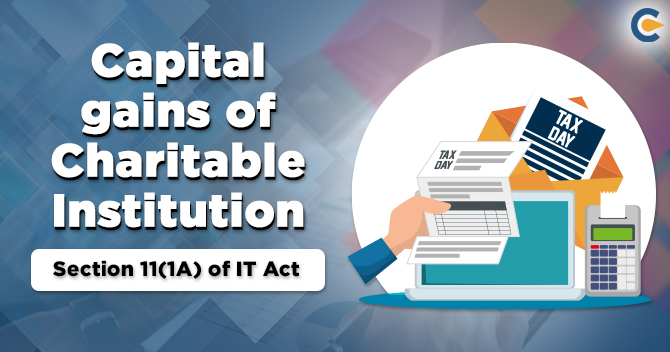A trust can either be public or private. Private trusts operate under the ambit of the Indian Trusts Act 1882. Trust Registration under Indian Trust Act, 1882, renders legal protection for the trustor’s assets, to ensure those assets are distributed as per the trustor’s intention, and to save time, minimize paperwork &, in some scenarios, avert or reduce inheritance or estate taxes. In this write-up, you will come across procedural instructions for securing Trust Registration under Indian Trust Act 1882.
What do you mean by the term “Trust”?
- In view of the purview of the Indian Trust Act, 1882, a Trust is referred to as an arrangement where the trustor, i.e. owner, transfers the property to a trustee for the benefit of the outsider, i.e. third-party. Such a property is transferred to the trustee from the trustors’ end, declaring that the trustee should hold the property for the Trust’s beneficiaries
- Trust is set up by settlors (person and his or her lawyer) who decide how to transfer their assets to trustees. These trustees are bound to manage such assets for the Trust’s beneficiaries. The rules of a trust revolve around the terms on which it was set up.
- A trust can be utilized to determine how an individual’s fund should be administered & distributed while that individual is alive or after their demise.
Trusts can be categorized into essential parts:
Public Trust
As the name suggests, the public Trust is the one whose beneficiaries remain the public at large. Moreover, such a trust can be further subdivided into Public Religious Trust & Public Charitable Trust.
Private Trust
A Private Trust, on the other hand, refers to an arrangement whose beneficiaries include individuals or families. Moreover, such a trust can be sub-divided into the following:
- Private Trust whose beneficiaries & the requisite shares can be determined
- Private Trusts whose beneficiaries & the requisite shares cannot be determined
- For the purpose of NGO registration, one has to take the following matters into account:
- Name and Address of the Trust;
- The nature of the Trust, whether it is for a religious or charitable purpose;
- Trust’s settler
- Two trustees;
- Trust property whether it is movable or immovable.
Read our article:Cancellation Grounds for Trust Registration 2020: New Changes
What is a Trust Deed?
Trust deed serves as a legal instrument that is used for proclamation of Trust. A trust deed entails various clauses such as name clause, registered business place clause, settler & trustee clause, general body member clause, so on and so forth.
Major Inclusions in a Trust Deed
Trust deed primarily entails the following elements:
Objects: The object for which the Trust is formed is mentioned in this clause. This is a vital clause as all activities are executed for meeting these objectives only.
Acceptance of Funds: The Trust can accept grants, donations, subscriptions, and contributions from any individual, government[1] or any other charitable agencies, in cash or in-kind, including immovable assets without any charge on it. However, it is not eligible to accept any such funds with the conditions that compromise the objectives of the Trust.
Investments: It is the liability of the trustees to administer the funds of the Trust legally and efficiently. The additional funds of the Trust that do not serve its objective should be used for buying securities and other investments.
Power of the Trustees: The trustees are legally obligated to serve their responsibilities in line with the clause mentioned in the trust deed. The trustees, in general, have the given powers for the conduct & management of the Trust:
- Appointment of the employees or alienate the trust properties
- Open the bank account in the name of the Trust
- Leverage legal proceeding in case of dispute on behalf of the Trust
- Accept any gift, contribution, or donations
- Invest additional funds in securities
Accounts and Audit: The trustees are obligated to administer the book of account and also get the account audited by the certified CA.
Winding up: In the case of winding up of the Trust, the assets of the same shall not be transferred to the trustees. They shall be transferred to other identical organizations or trusts whose objects are identical with the consent of the charity commissioner/Court/any other law which is in effect for the time being.
Mandatory Prerequisites for Trust Deed Registration
Following are the mandatory prerequisites for a trust registration deed:
- Trust deed printed on the Stamp paper enclosing requisite stamp duty;
- Passport size photograph & Identity Proof of settlor;
- Passport size photograph & Identity Proof of two witnesses;
- Passport size photograph & Identity Proof of two trustees;
- Signature of settlor on each page of the trust deed;
- On each page of the trust deed, the signature of the settlor;
- Presence of two witnesses on the trust deed.
Detailed Process of the Trust Registration under Indian Trust Act, 1882
Following is the step-by-step process for registering a trust in India:
Step 1: Name Selection
The first step is to select the name for Trust. For this purpose, you need to keep the following things in mind.
- The name should be unique;
- The name should not disrupt the interest of the public or others in any way;
- The name should not violate Trademark Act in any way
Step 2: Decides on the number of trustees
Decide on the number of trustees for the Trust seeking registration. As per the Trust Act, 1882, a minimum of two members are required to register a trust in India.
Step 3: Draft Trust Deed
In this step, trustees & the author of the Trust draws a contract known a trust deed and enclose all the relevant provisions under the supervision of a lawyer.
Step 4: Approach Sub-Registrar with the attested trust deed and two witnesses
For trust deed registration, trustees & the author of the Trust should visit the sub-registrar office along with two witnesses. Here the Sub-Registrar will scrutinize the attested trust deed & validate the same upon receiving the standard registration fee.
Key benefits of securing Trust Registration under Indian Trust Act, 1882
- Trust usually comes into existence to serve charitable purposes and avail the tax exemption. Please note the tax implications are not applicable to the income of registered NGOs as public Trusts or Section 8 Companies or society.
- Tax exemptions are accessible to registered Trust u/s 12A and 80G of the Income Tax Act. Please note that income tax registration is compulsory to access tax exemptions.
- A trust safeguards assets from the creditor, & it can dictate the conditions of inheritance for beneficiaries.
- Trust can be utilized for estate planning. Generally, the deceased person’s assets are passed to the wife & then divided equally among the surviving children. But, children below the age of 18 need to have trustees, someone who takes care of their assets until they reach the legal age.
Application for the 80 G Certificate
80G certificates serve as a legal certification that exempts the taxpayers partly or wholly from paying taxes on the donations made to the section 8 entity, charitable trusts, or other registered organizations.
Following are the mandatory documents required to be submitted for 80G:
- Form 10G;
- Registration Certificate;
- Copy of Utility Bill;
- NOC from the landlord;
- Copy of PAN Card;
- Copy of Trust Deed;
- Books of accounts for past three years;
- Evidence of welfare activities
Conclusion
It may be noted that Trust should fulfil underlying eligibility criteria in case the goal is the procurement of funds. A trust should possess a valid trust deed enclosing all the relevant clauses as mentioned above. Kindly write to us in case you need some assistance on Trust Registration under Indian Trust Act, 1882.
Read our article:Know the Advantage of Trust Registration in India











